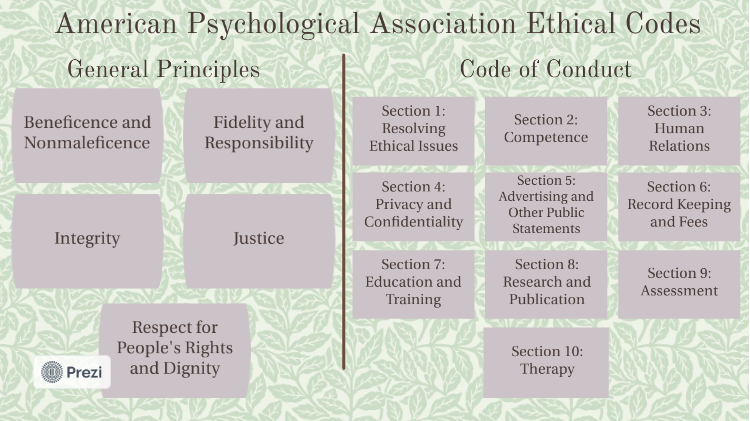According to Jenner Law firm, the most common violations in therapy include sexual relations, breach of confidentiality, and engaging in dual relationships.
For this reason, continuing education in ethics for therapists enables them to protect their clients and profession. Also, ethics CEUs (Continuing Education Units) allow you to grow professionally and strengthen your practice’s integrity.
In this blog post, we’ll dive into the significance of CEUs in ethics, their impact on your career, and how they contribute to mental health practices.
What Are the Ethical Considerations for Therapists?
Ethical principles are a framework that helps therapists make decisions based on fairness, respect, and responsibility. They guide you on how to serve your clients best and protect yourself from potential legal or professional repercussions.
And they include confidentiality, dual relationships, informed consent, and professional boundaries.
For example, the American Psychological Association’s Ethical Principles of Psychologists and Code of Conduct provide guidelines for psychologists to consider when making decisions about their clients.

Ethics for counselors enable you to navigate complex situations where the lines between right and wrong might blur. So adhering to ethical principles protects your clients, upholds the profession’s integrity, and maintains public trust.
Why Does Ethics Matter in Mental Health Practice?
Ethics form the backbone of any professional practice, and this is especially true in mental health. As a therapist, counselor, social worker, or psychologist, you have a delicate and significant responsibility to guide individuals through their most vulnerable moments.
Your decisions and actions can profoundly impact their lives. This is why understanding and adhering to ethical standards are non-negotiable.
What’s the Role of Ethics CEUs?
Ethics CEUs keep you updated on the latest ethical standards and practices in mental health. They’re not just a box to check off on your license renewal form, but a crucial aspect of your professional development. Ethics courses provide you with the tools and knowledge to handle ethical dilemmas with confidence and competence.
Continuing education in ethics helps you stay current with changes in laws and regulations affecting your practice. You learn about new ethical challenges that might arise due to technological advancements, changes in societal norms, or clinical practice developments.
For instance, the rise of telehealth and other therapeutic technologies has introduced new ethical considerations regarding confidentiality and client privacy. Ethics CEUs can help you manage these new terrains effectively.
Enhancing Professional Competence
One of the key benefits of ethics CEUs is that they enhance your professional competence. These courses involve case studies, real-life scenarios, and interactive discussions that challenge you to think critically about ethical issues.
Also, they encourage you to reflect on your own practices and identify areas where you need to improve. As a result, you understand ethical principles in-depth and learn how to apply them in your daily practice.
Ultimately, CEUs in ethics let you make better decisions and boost your confidence in handling complex ethical situations. It reassures your clients about your commitment to maintaining the highest standards of professional conduct.
Building Trust with Clients
Trust is the foundation of any therapeutic relationship. Clients must feel confident that you’re trustworthy, competent, and committed to their well-being. You demonstrate your dedication to ethical practice and professional growth when you engage in ethics CEUs.
The programs can boost your reputation and help you build stronger relationships with your clients.
In addition, patients can trust you with their personal and sensitive information when they know you’re continuously educating yourself on ethical issues.
They can get assurance that you’ll handle their cases with the utmost care and integrity. And this trust is vital for effective therapy and positive outcomes.
Navigating Ethical Dilemmas
Ethical dilemmas are an inevitable part of mental health practice. Whether it’s maintaining confidentiality when a client poses a danger to themselves or others, managing dual relationships, or ensuring informed consent, ethical challenges can arise unexpectedly.
So ethics training programs can equip you with the knowledge and skills to cope with these dilemmas effectively.
Also, they present complex scenarios that require you to think critically and make tough decisions. The courses provide a safe space to explore different perspectives and outcomes, helping you prepare for real-life situations.
You can approach dilemmas with greater clarity and confidence by honing your ethical decision-making skills.
Staying Updated with Regulatory Changes
Mental health is evolving, with new research, technologies, and regulations emerging regularly. Keeping up with these changes allows you to maintain your license and provide the best possible care for your clients. CEUs in ethics let you stay informed about new laws and guidelines that impact your practice.
For example, changes in confidentiality laws, mandatory reporting requirements, or telehealth regulations can affect how you conduct your practice. Completing ethics CEUs keeps you updated on these changes, helping you remain compliant and avoid legal pitfalls.
Promoting a Culture of Ethical Practice
As a result of ethics CEUs, mental health experts can contribute to a culture of ethical practice throughout the profession.
When you prioritize ethical education, you can set a standard for your peers and colleagues. And this collective commitment to ethics enhances the profession’s reputation.
You can also become a role model for others in your career by going through ethics programs. This fosters a culture of continuous learning and ethical awareness, ultimately benefiting clients and the profession.
How To Choose the Right Ethics Programs
The next step is selecting the right courses to fulfill your continuing education requirements. Not all CEUs are created equal, so pick high-quality, reputable courses that provide valuable content and meet your state’s requirements.
Look for accredited courses from recognized organizations, such as the American Psychological Association (APA) or the National Association of Social Workers (NASW). The certifications enable you to meet the licensing boards’ standards and offer relevant, up-to-date information.
Consider the format of the courses as well. Online courses offer flexibility and convenience, allowing you to complete your CEUs at your own pace and from the comfort of your home or office. And they’re perfect for busy professionals who want to balance their education with their practice.
Protect Your Clients and Profession with Ethics Courses

Courses in ethics are like an insurance policy, which protects and empowers you to provide the best possible services to your clients. For this reason, Online CE Credits is a therapist-managed training platform with in-depth and on-demand ethics CEUs. It offers over 250 programs online from established therapists to allow you to study anytime, anywhere.
Ready to kickstart your ethics courses? Select from the accredited programs below:
- Ethics Deep Dive – Avoid Easy Traps That Bring Board Complaints/Lawsuits!
- Ethics Around Clinical Teams, Professional Relationships, & Referral Sources
- Ethical Practice in the Delivery of Telehealth Clinical Supervision
- Ethics & Boundaries – Avoiding Pitfalls & Preserving the Alliance!
- Ethical and Legal Issues in Mental Health Treatment
- Ethics: Pitfalls and Dangers Around Scope of Practice in Mental Health
- Ethics of Managing Collaterals and Interested Parties in Therapy
How To Make the Most of Your Ethics CEUs
To get the most out of your CEUs in ethics, approach them with an open mind and a willingness to learn. Engage actively in the course material, participate in discussions, and reflect on how the concepts apply to your practice.
Also, consider keeping a journal to document your thoughts and insights, which’ll serve as a valuable resource for future reference.
Don’t hesitate to seek out additional resources or mentorship if you encounter ethical dilemmas that you find challenging. Discussing these issues with colleagues or supervisors can provide new perspectives and help you develop a more nuanced understanding.
Explore Ethics for Therapists
Remember, ethics CEUs are not just a requirement but an opportunity for growth. Embrace them to hone your professional skills, improve practice, and better serve your clients. Also, integrating ethics into your continuing education demonstrates your commitment to excellence and integrity.
In addition, ethics programs keep you updated on the latest ethical standards, advance your professional competence, and build trust with your clients. They equip you with the knowledge and skills to handle ethical dilemmas and maintain the highest standards of professional conduct.
Fuel Your Success with Nationally Approved Ethics Courses
If you’re looking for accredited programs in ethics for counselors, psychologists, social workers, or mental health professionals, you’re on the right platform. Online CE Credits provides nationally approved ethics CEUs to help you advance your career and fulfill licensure requirements. The best part? You can gain instant access to the lessons at affordable rates.
Don’t take our word for it. Stop just meeting the minimum requirements. Get the knowledge and skills to become a leader in ethics courses.
FAQS
What is the Universal Declaration of Ethics for psychologists?
The Universal Declaration of Ethics for Psychologists is a document that provides ethical guidelines for psychologists. It was developed by the American Psychological Association in 1953.
What happens if a psychologist breaks the code of ethics?
If a psychologist breaks the code of ethics, their professional organization may discipline them. This could include being fined, suspended, or having their license revoked. Additionally, they may be held liable for any damages caused to a client or the public.
What are the responsibilities of a psychologist in ethics?
A psychologist must follow the American Psychological Association’s code of ethics, which outlines their responsibilities to their patients, the public, and the profession. These responsibilities include providing competent and ethical care, maintaining confidentiality, and engaging in research that is in the public interest.
What are the violations of ethics in therapy?
Violations of ethics in therapy include engaging in sexual relationships with clients, providing inaccurate or misleading information, and exploiting clients for personal gain.